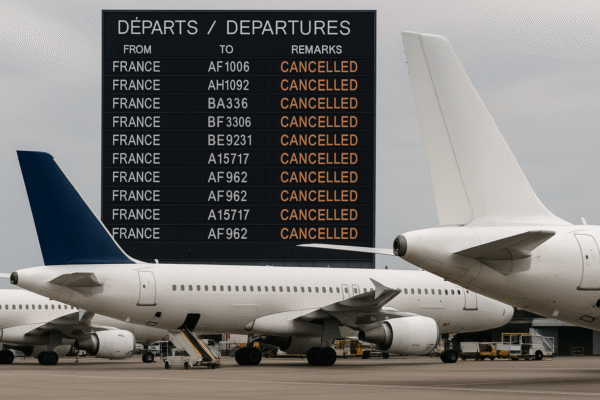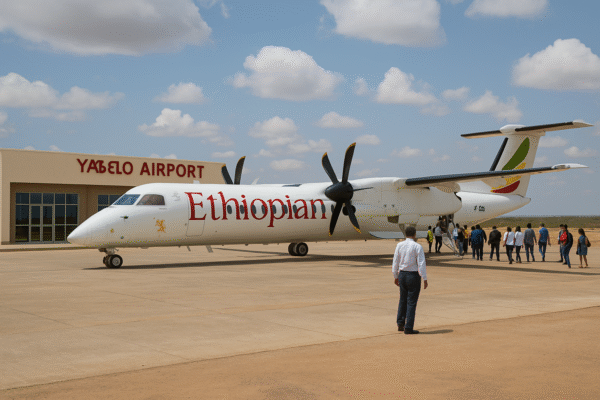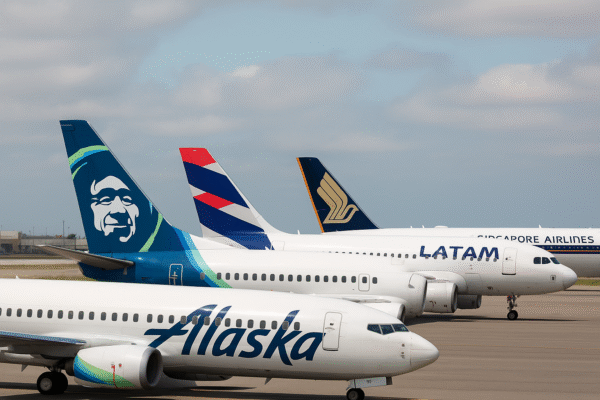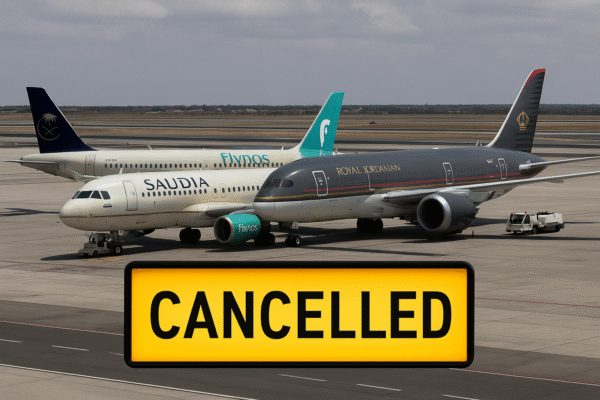Travelers across the Middle East faced major disruptions today after Saudia, Flynas, and Royal Jordanian announced the cancellation of 14 flights. These sudden operational changes have thrown travel plans into disarray, affecting thousands of passengers traveling through key airports in Saudi Arabia, the United Arab Emirates, and Jordan.
Widespread Cancellations Across Key Airports
The cancellations have impacted high-traffic hubs including King Khalid International Airport (RUH) in Riyadh, Dubai International Airport (DXB), and Queen Alia International Airport (AMM) in Amman. These airports serve as critical nodes in regional and international aviation, handling millions of passengers monthly. The sudden disruption is causing significant inconvenience, from delayed departures to rerouted flights and missed connections.
Saudia: Domestic Routes Hit the Hardest
Saudi Arabia’s flagship carrier, Saudia, reported cancellations primarily on domestic routes. Affected flights are concentrated between King Khalid International Airport in Riyadh and King Fahd International Airport in Dammam (DMM), with some services to King Abdulaziz International Airport in Jeddah (JED) also disrupted.
These domestic routes are vital for both business and leisure travelers. The Riyadh–Dammam corridor, in particular, is a high-frequency route catering to corporate travelers and families alike. With cancellations piling up, passengers have faced extended wait times and a scramble to find alternative travel options.
Flynas: International Disruptions Between Saudi Arabia and the UAE
Flynas, Saudi Arabia’s leading low-cost carrier, has also been hit hard, particularly on the Riyadh–Dubai route. The popular Riyadh–Dubai and Dubai–Jeddah flights have been canceled, creating a ripple effect for passengers connecting to onward destinations in the UAE or returning to Saudi Arabia.
The Riyadh–Dubai route is one of the busiest in the Gulf, critical for both business engagements and leisure travel. The cancellations have disrupted schedules for business executives, tourists, and expatriates, many of whom rely on these flights for short, frequent trips between the two countries.
Royal Jordanian: Europe–Middle East Travel Impacted
Royal Jordanian has also announced cancellations on its Europe–Middle East corridor, particularly the route linking Amman (AMM) to Maastricht Aachen Airport (MST) in the Netherlands. This route serves as a bridge for passengers traveling between the Middle East and Europe, with many using it for business trips, education, or tourism.
Travelers on this route have been urged to rebook flights or consider alternative connections through other European hubs to minimize the disruption to their plans.
Why the Disruptions Happened
While the airlines have not released a single definitive reason for the cancellations, industry experts point to a combination of operational challenges, aircraft availability issues, and heightened demand pressures. The Middle East, a hub of global aviation, often experiences these types of disruptions during peak travel seasons or during sudden operational shifts.
In some cases, external factors such as weather conditions, staffing shortages, or technical maintenance delays can further amplify the impact, especially when multiple carriers face challenges simultaneously.
Impact on Travelers
For passengers, the cancellations have caused a mix of frustration and uncertainty. Travelers with domestic connections within Saudi Arabia have found it especially difficult to secure alternative options, while international passengers on transit itineraries through Dubai, Riyadh, or Amman have reported significant delays to their onward journeys.
Airport terminals have seen long queues at airline counters, with ground staff working to accommodate rebookings and issue travel vouchers where possible. Some passengers have opted to switch to alternative carriers, but limited availability and higher last-minute fares have complicated these efforts.
What Travelers Should Do
Passengers affected by the cancellations are advised to take immediate steps to manage their travel plans effectively:
- Monitor Flight Status Regularly: Check official airline websites or mobile apps for real-time updates.
- Contact Customer Support Promptly: Call the airline’s service line or approach airport desks for assistance with rebooking options.
- Consider Alternate Routes: Look for flights with other carriers or through secondary airports when direct options are unavailable.
- Allow Extra Time for Connections: If traveling internationally, build in additional layover time to reduce the risk of missed flights.
- Stay Updated on Airport Announcements: Monitor airport screens and announcements for gate changes or updated boarding information.
Economic and Tourism Ripple Effects
The sudden wave of cancellations has also had economic implications. The Middle East’s aviation sector is a cornerstone of the region’s economy, driving business connectivity, tourism growth, and international trade. Disruptions of this magnitude affect not only individual passengers but also industries dependent on consistent air travel, from logistics to hospitality.
For tourists, the cancellations have disrupted vacation plans, while business travelers face delays in meetings and project timelines. Airports in Riyadh, Dubai, and Amman are working closely with airlines to minimize further disruptions and restore operational stability.
Looking Ahead
As the affected airlines work to stabilize their schedules, industry analysts suggest that better communication, stronger contingency planning, and increased fleet flexibility could help reduce the impact of such disruptions in the future. The situation serves as a reminder of the critical role that reliable air travel plays in regional connectivity and economic activity.
Passengers planning upcoming trips through Middle Eastern hubs are advised to book early, stay informed about flight changes, and maintain flexible travel plans. Airlines are expected to provide more clarity in the coming days as operations gradually normalize.
For more travel news like this, keep reading Global Travel Wire
















